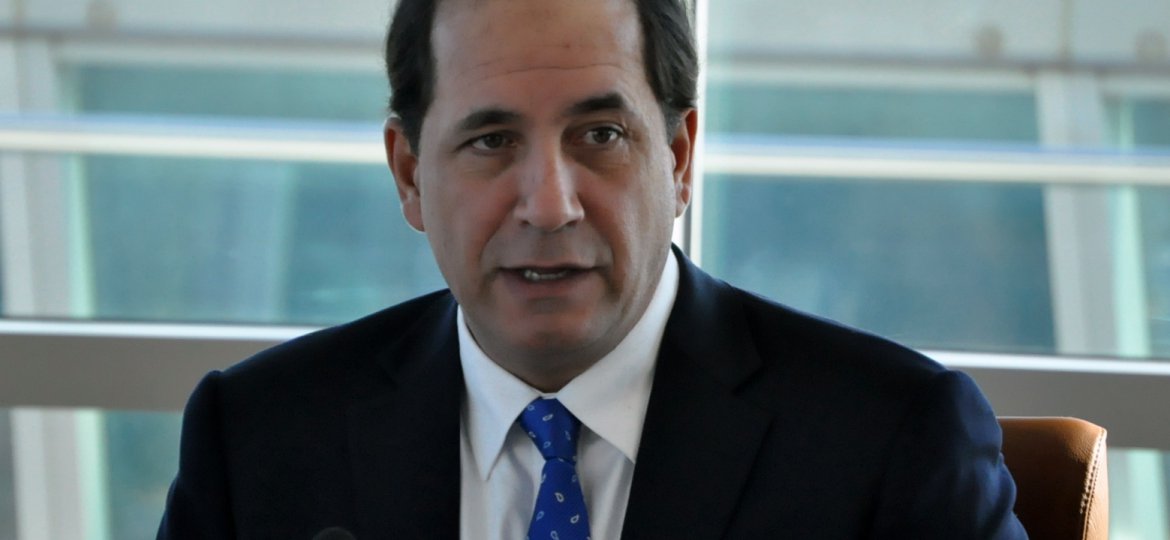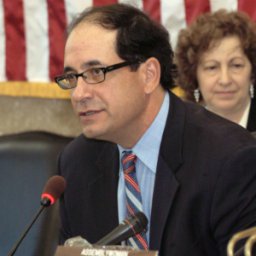
The first round of bills championed by the State Senate to combat the prescription drug and heroin abuse epidemic in New Jersey was signed into law today by the Governor. The three bills are part of a comprehensive bipartisan bill package led by Senate Health Human Services and Senior Citizens Committee Chairman Joseph F. Vitale to provide education, prevention and treatment options for those dealing with drug addictions.
“More than a year and a half ago, we set out to change the way we think about and address drug addiction in New Jersey, to tackle this pervasive problem that is killing hundreds of our state’s residents,” said Senator Vitale, D-Middlesex. “Today, we see the beginning of that work paying off as we change laws and implement programs that will save individuals’ lives and help them to begin to recover from their addictions. From expanding the program that literally puts a stop to overdoses through an opiate antidote to providing those with an addiction and their families with up to date information regarding treatment options to ensuring that those who fill our state’s prisons are getting the right type of treatment so they can enter society in recovery rather than the real risk of relapse, these bills will make a difference in individuals’ lives. I look forward to continue to work with the Governor to complete this bill package and to put a stop to this epidemic in New Jersey.”
The first law, S-2378, sponsored by Senator Vitale and Senator Robert Singer, will expand the Overdose Prevention Act to allow medical professionals to provide a standing order for Naloxone – an overdose antidote – to other professionals who work at syringe exchange programs, community-based programs, substance abuse therapy programs or other organizations where they come into contact with people who are susceptible to an opioid overdose. The law extends the immunity provisions of the original bill to allow these professionals to dispense the antidote to clients and patients who may be likely to need the antidote. The law will go into effect immediately.
“Week after week we continue to see real stories of how the use of Naloxone is saving lives across New Jersey and giving residents a second chance. Expanding the reach of this life-saving antidote will not only save more lives but hopefully give more people struggling with the disease of addiction a chance to seek out treatment,” said Senator Singer, R-Monmouth and Ocean.
According to a New Jersey Advance Media article, 750 New Jerseyans lives were saved using Naloxone in its first year of use by law enforcement throughout the state. The Senators note that the more available the antidote is to those who may need to use it, the better the chance to save someone’s life and help transition them into treatment for their addiction.
The second measure signed into law today, S-2373, sponsored by Senator Vitale and Senator Dawn Marie Addiego, will help those looking for the right treatment options for their own recovery to make an informed decision. Under the law, the Division of Mental Health and Addiction Services will be required to annually prepare a Substance Use Treatment Provider Performance Report including the patients’ success of remaining abstinent from drugs and alcohol after completion of the program, employment figures, education and job training admissions and housing information. The law will go into effect on June 1st.
“In battling the state’s growing heroin epidemic, we need to ensure that people seeking to be healed have access to effective substance abuse treatment providers,” said Senator Addiego, R-Burlington, Camden and Atlantic. “This new law will help us all understand the treatment facilities that work well and those that need improvement, in order to help more people to successfully overcome addiction.”
The third law, S-2380, sponsored by Senator Vitale and Senator Raymond J. Lesniak, will require coordination between the Commissioners of Human Services and Corrections to ensure that state-owned correctional facility inmates are receiving mental health and substance abuse disorder services by licensed service providers. The law requires the creation of a joint plan between the two departments that outlines procedures for identification, evaluation and treatment for inmates with mental health or substance abuse issues. The law will go into effect on June 1st.
“New Jersey’s prisons are filled with individuals with an addiction, often arrested for drug-related crimes,” said Senator Lesniak, D-Union. “As a state, we have the choice between providing these individuals with treatment, so when they are released they can become productive members of society or to release them with their addictions and watch as they return to the prison system over and over again. We have made great strides over the past few years with the expansion of drug courts, but if the treatment we are providing them is not adequate to get these individuals clean, our efforts are for naught. This legislation ensures that the Department of Corrections is working closely with the Department of Human Services Division of Mental Health and Addiction Services so that they are not receiving inferior treatment opportunities to those who are outside the correctional system.”
The full Senate is set to take action on three additional measures that are part of the heroin package later today. The three bills are:
- S-2369, sponsored by Senator Jim Whelan, D-Atlantic and Senate Republican Leader Tom Kean, R-Union, Somerset and Morris, that would codify and expand the “Project Medicine Drop” program;
- S-2370, sponsored by Senators Whelan and Joe Kyrillos, R-Monmouth, that would require pharmacists, doctors and advanced practice nurses who dispense prescription medication to alert their patients of safe and proper disposal methods of excess medications; and
- S-2372, sponsored by Senators Fred H. Madden, D-Gloucester and Camden, and Steve Oroho, R-Sussex, Warren and Morris, that would authorize the Attorney General to coordinate and direct a statewide effort of law enforcement agencies along with the Division of Consumer Affairs and professional licensing boards to identify, investigate and prosecute illegal sources and distribution of prescription opioid drugs.





